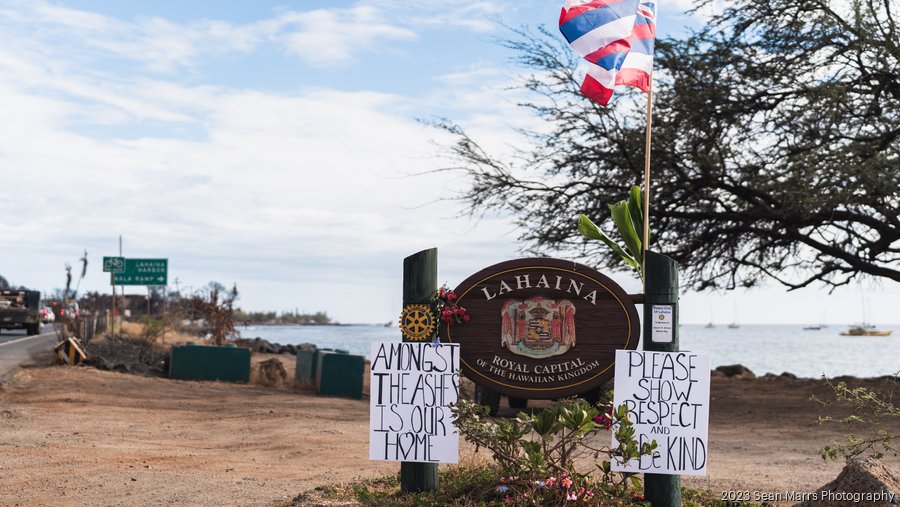Listen to this article 12 min
The Hawaii Department of Health released findings on Tuesday from its Maui Wildfires Public Health Rapid Needs Assessment Report, which was conducted in early October to identify the needs of Lahaina residents affected by the Aug. 8 wildfire.
According to the report, DOH surveyors conducted interviews with 228 randomly selected households to assess the wildfire impacts on physical and mental health, while completing a total of 94 referrals for behavioral health, medical care, health insurance, dental care and case management services.
Households reported their greatest needs as financial recovery, 26%; finding permanent residence, 23%; and finding employment, 9%.
“The needs assessment provided a critical opportunity for the affected communities to voice current needs and concerns,” Deputy State Epidemiologist Dr. Nathan Tan said in a statement. “We thank all participants for their time and manao. We connected 64 households with services during the assessment and are now working with response partners to address identified issues as recovery work continues.”
Fifty-six percent of households are still in non-congregate shelters, or hotels, and/or are doubled up with family or friends. This number does not include those in short-term rentals through platforms such as Airbnb.
The majority of respondents reported that all their household members still reside on Maui.
Additionally, 64% of households reported experiencing barriers when signing up to receive disaster assistance from agencies including Federal Emergency Management Agency, American Red Cross and People’s Fund of Maui. On average, households applied to 4.2 different assistance programs and the majority were approved or pending at the time of the survey, the report noted.
The assessment found that half of households were denied at least one of the assistance types they applied for. The assistance resources that were most commonly denied were: Small Business Administration, 33%; FEMA, 31%; United Way, 27%; People’s Fund of Maui, 21%; Unemployment Insurance, 18%; and Supplemental Nutrition Assistance Program, or SNAP, 17%.
The assessment also highlighted ongoing impacts on physical well-being:
- Forty-one percent of survey respondents reported a decline in a household member’s health.
- Twenty-two percent of households rated their own mental health as poor or very poor.
- Sixty-eight percent reported that all or some household members are experiencing impaired sleep.
- Seventy-two percent reported at least one household member experiencing nervousness, anxiety, or depression in the two weeks before the assessment was conducted.
- Eighty-two percent of surveyed households felt they could access medical care if needed. Eighty percent reported that they know where to seek those services if needed.
DOH said it is working with program leaders and other partners to develop recommendations for the issues identified by this assessment.
To read the report in full, click here.
